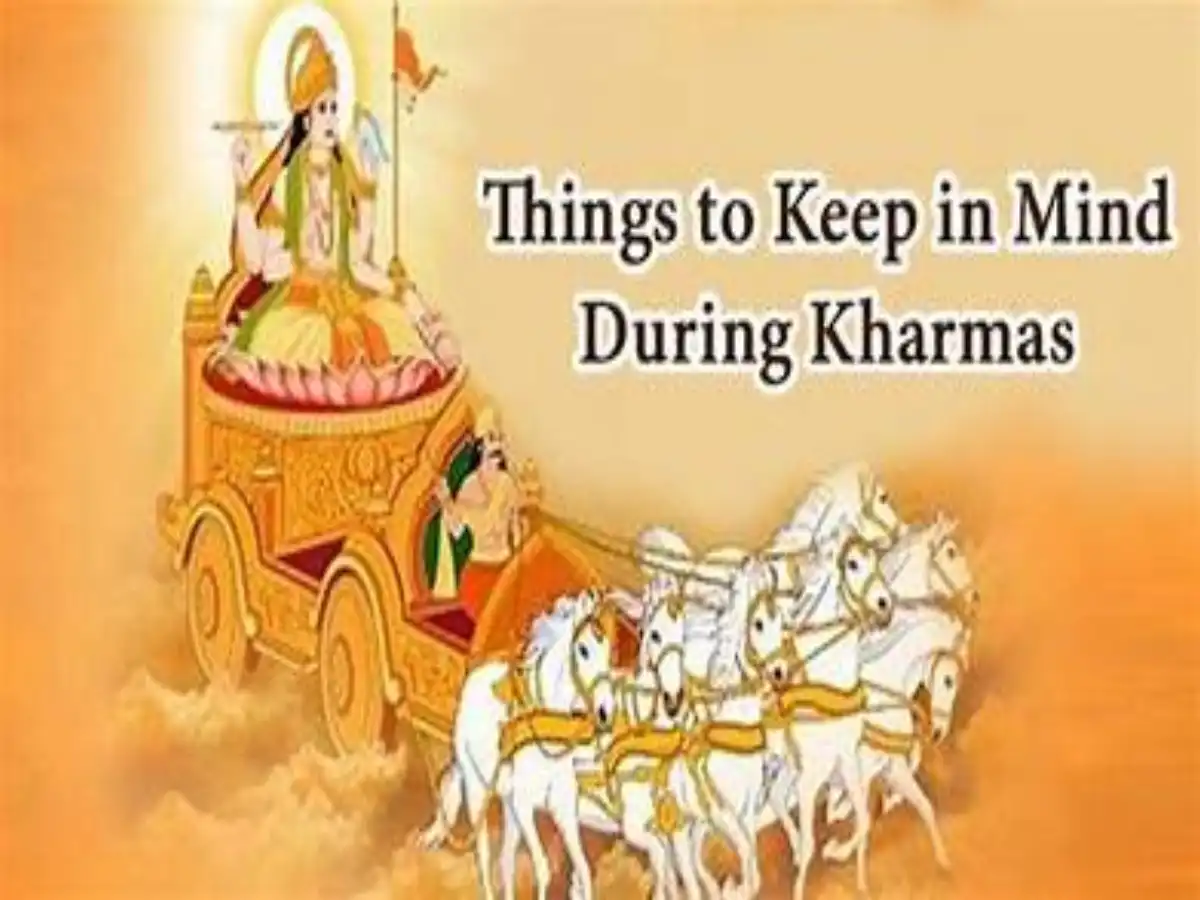Understanding Kharmas: A Mythical Journey
<p>The astrological transition from Dhanu Sankranti on December 16, 2023, marks the commencement of Kharmas, concluding on Makar Sankranti on January 15, 2024. Lasting a month, Kharmas holds immense significance in scriptures, rendering this period unfavorable for auspicious activities. Delve into the mystical lore behind Kharmas to grasp its essence. Unveiling Kharmas’ Essence: The Mythical […]</p>

Understanding Kharmas: A Mythical Journey
The astrological transition from Dhanu Sankranti on December 16, 2023, marks the commencement of Kharmas, concluding on Makar Sankranti on January 15, 2024. Lasting a month, Kharmas holds immense significance in scriptures, rendering this period unfavorable for auspicious activities. Delve into the mystical lore behind Kharmas to grasp its essence.
Unveiling Kharmas’ Essence: The Mythical Narrative (Kharmas Katha)
The period termed as ‘Gurvāditya’ occurs when the sun resides in the zodiac of Jupiter. It’s considered unfavorable for positive endeavors. According to mythical legends, the sun deity incessantly rides his seven-horse chariot, maintaining the cosmic pace. The continuous motion sustains the dynamism of nature itself. As per sacred texts, the sun cannot afford even a momentary pause, for stagnation could lead to chaos in existence.
The Inclusion of ‘Khars’ in the Sun God’s Chariot
Legend has it that during one of the sun deity’s celestial circuits, his horses grew weary in the midst of the seasonal change. Seeking respite by a pond, crucial for the sun’s continuous journey, two donkeys (‘khars’) were yoked to the chariot to facilitate its motion for the forthcoming month.
The addition of donkeys significantly slowed the chariot’s pace. Nevertheless, completing the cycle of a month, the sun deity’s horses rested leisurely during this period. It’s believed that after a month, the sun deity reinstated his horses to the chariot, marking the annual recurrence of this phase, termed as ‘Kharmas.’
The Inauspiciousness of Kharmas: Impact on Auspicious Rituals
According to astrological doctrines, auspicious rites such as weddings, initiations, and housewarming ceremonies are considered based on Jupiter’s favorable positioning. However, when the sun enters Sagittarius or Pisces, Jupiter’s influence diminishes, coinciding with the sun’s reduced pace. Consequently, Kharmas imposes constraints on auspicious activities, for their outcomes during this period are deemed unfavorable.
By unraveling the mythical essence of Kharmas, one comprehends its astrological and traditional implications, shaping beliefs and practices during this unique celestial phase.








